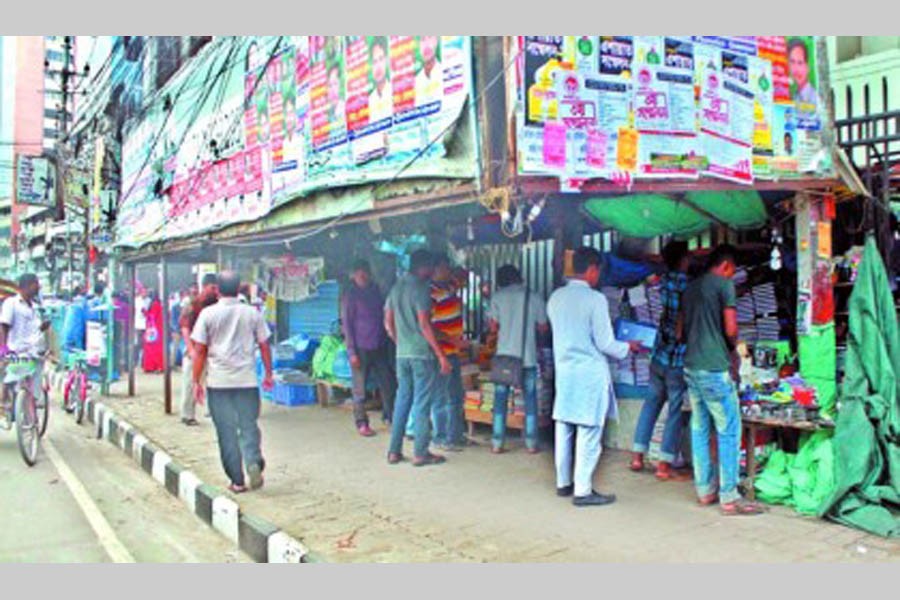Of the many merits of the just announced budget for 2019-20, one extolled for its likely positive impact is the expansion of civic service. This by no means should be confused with social safety net, the range and scope of which have been proposed to be broader and more extensive. Neither should it be confused with the budgetary initiative for creation of urban facilities in rural settings. Here the issue concerns some public services for people -the underclass in particular-living in urban centres.
In a megacity like Dhaka, such facilities are conspicuous by their absence. The few initiatives taken so far to relieve the urbanite's sufferings have failed to deliver the goods because maintenance and operation of the amenities have failed to live up to the expectation. For example, bus-stop benches, which still remain intact, are occupied mostly by vagabonds or people of suspicious character. The waiting sheds once built to accommodate newspaper stalls are either disused or illegally occupied for purposes other than the one they were meant for.
Then the public toilets have a sad story to tell. So inadequate are the facilities in the capital that many are forced to relieve themselves in the open right under the public gaze. Women in particular are the worst sufferers because of the lack of such facilities decent enough for their use. Even the few better version of those constructed lately are often kept under lock and key. A civilised society cannot and should not turn a blind eye to paucity of arrangements for meeting emergency calls.
Although Kolkata is a capital of one of India's 29 states and seven union territories, it has many similarities with the Bangladesh capital. Where the West Bengal capital enjoys an edge over Dhaka is the area of civic service. Apart from free wash rooms, there are such well-maintained improved facilities where a nominal charge is demanded. Any visitor there can avoid embarrassment in time of a call of nature if s/he cares to protect his or her privacy.
However, the service in which Kolkata excels is the arrangement of free distribution of water -used both for household chores or bathing and drinking. There is an arrangement of supplying water courtesy of what is called 'time kol' -piped water available at specific times of the day on roadside. Unlike tap water, water gushes forth automatically from a tube-well like head made of iron cast and those who have no piped water at home can collect water from there. Floating people make good use of the facilities as they take bath in the open. To unaccustomed eyes, this may not be a pleasant sight but it serves a most essential service for the extremely needy. Any such arrangement could lessen the suffering of people in areas like Jurain deprived of water supplied by the Water and Sewerage Authority (WASA). In other cities also such an arrangement could be of immense help to the needy. In West Bengal, such a system of water supply has been introduced to settlers' colonies set up in localities far removed from urban centres.
So far as free drinking water is concerned, the network is quite extensive. Every railway station worth its name in India has such an arrangement and in larger junctions there are several such facilities for the passengers to quickly collect some water. In Kolkata, there are many such facilities located at strategic points. Sure enough, bottled water is there. Those who can afford buy such bottles and the residents can use large water jars but the poor are not forgotten by the city authorities. They must as well have access to pure drinking water. Thus the tradition of serving the most needy has developed. Why not the city corporations emulate the spirit of caring for the needy, the poor? This is how a social bond is fostered and the underprivileged do not feel they are left out.


